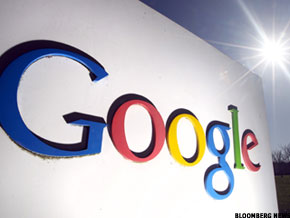THE more I study the
Indian and Chinese growth models, the more I realise that the current debate over the state versus the market is a false dichotomy.
Both the state and the market are
social institutions that are not independent of each other. Indeed, they are inseparable, interactive and interdependent.
Human development or evolution is a complex interaction or feedback between the two. In
Small is beautiful author
EF Schumacher's view, “Maybe what we really need is not either-or but the-one-and-the-other-at-the-same-time”.
India and China could not have become global powerhouses of growth, without the leading role of the state in planning for development. But those states that have worked with markets have succeeded better than those that worked against markets.
London Business School Prof John Kay defines the market as a relatively transparent, self-organised, incentive-matching mechanism for the exchange of goods and services, usually in monetary terms.
In plain language, the market helps to match willing buyer, willing seller under certain rules of the game to determine market price. The market clears when it functions properly, but
market failure happens when the market is imbalanced.
Kay reminds us that capitalism is less about ownership than “its competitive advantages its systems of organisation, its reputation with suppliers and customers, its capacity for innovation”.
Because of globalisation and technological change, we are living in a situation of change within change, as if the national state is not in total control of our destinies. Because of the global economy, state policies such as monetary, exchange rate and trade, cannot be independent of what is happening globally.
No man, no company, no state is an island. Globalisation has changed the rules of the game irreversibly.
Why is the state so much bigger and more powerful than before?
In the 19th century, most governments were not larger than 15% of
GDP. By 1960, the size of governments in
OECD countries had doubled to 30% of GDP. Today, the average has increased further to 40% of GDP.
The state has grown because there has been demand for more and more state services, but there is also concern that bureaucracies tend to grow to perpetuate itself.
I find it useful to think about the state as a market-like institution for exchange of power (in non-monetary terms). Power comes from social delegation the people give the power to the state to protect them and to fairly enforce social rules and laws. Hence, the “state as market” has the same dilemmas as the market information asymmetry and the principal-agent problem.
In large countries like India and China, there are many levels of government central, provincial, city, town, village and rural governments, each with their own departments and even enterprises. Most citizens find it difficult and confusing to deal with complex bureaucratic power. The Peruvian economist Hernando de Soto was one of the first to point out that rural poverty exists, because the poor's property rights are not protected adequately and their transaction costs are extremely high because of complex government.
In other words, markets are efficient and stable when the state is efficient and stable. It is not surprising from recent experience that financial crises are results of governance failures. As the
European debt crisis amply demonstrates, financial markets cannot clear when the fiscal condition of the state is on shaky grounds, and there is no mechanism to make fast, simple, clear decisions.
Finding the right balance between state and market is the real challenge in all economies today. As 20th century British philosopher Bertrand Russell reminded us, “people do not always remember that politics, economics and social organisation generally belong in the realm of means, not ends”.
Today's demands on the state to provide stability, growth and social equity are complex, because recent dominance of free market ideology has ended up with serious problems of wealth and income disparities and environmental degradation.
Realising that large states with geopolitically significant human and ecological footprints cannot consume like the
United States or Europe on a per capita basis, China and India are embarking on ambitious 12th five-year plans to change their growth models to become more environmentally sustainable economies with greater social inclusiveness.
But large economies with many layers of government struggle between centralisation and decentralisation of people, resources and power.
For systems to be stable and sustainable, they have to be adaptable to complex forces of change from internal and external shocks.
To maintain integrity, there are complex trade-offs between winners and losers in each society. Such rules and bargains are difficult when the causes and effects of losses are unclear (such as crisis) and when vested interests resist change for fear of losing what they have. Vested interests are often unwilling to change because they value present gains far more than uncertain futures. Politics is the compromise of contending interests.
The belief that markets are always right assumes that markets always balance. The market cannot balance when the state cannot balance the contending interests. The main reason for the advanced country debt crisis is because their consumption has happened today by postponing the costs to future generations.
This raises a fundamental problem. Whichever way you term it, central bank quantitative easing is ultimately state intervention.
The rise in Spanish bond yields, despite ECB long-term refinancing operations, suggest that the markets are saying there are limits to the growing euro public debt.
At the same time, global financial markets are watching carefully whether inflation in China and India will rekindle global inflation.
In other words, the anchor of global financial stability rests on state debt stability. The state cannot escape being priced by the market.
THINK ASIANBy ANDREW SHENG - Andrew Sheng is president of the Fung Global Institute.






